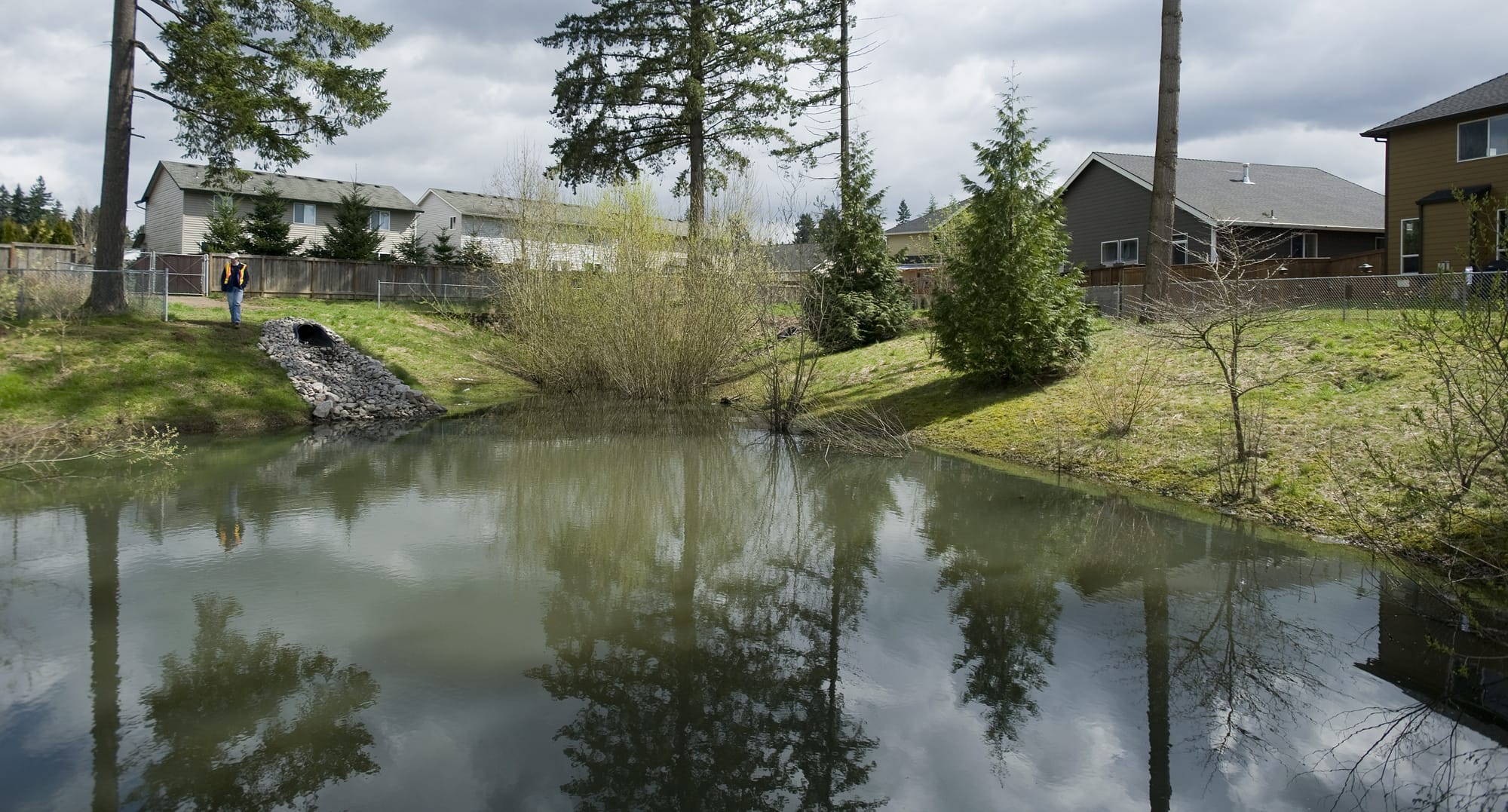A handful of Clark County schools will learn later this month whether they will be on the hook to pay county fees they’ve been exempt from furnishing in recent years.
The school districts have been at loggerheads with the county’s Department of Environmental Services over a proposal to strip schools of fee waivers for storm water mitigation since the beginning of the year.
So far, two districts are appealing the proposal, which calls for rescinding a waiver for school districts on storm water fees. The districts will learn the status of their appeals by June 30.
The fee proposal to charge districts the fees would be done to supplement the county’s clean water program funding, Environmental Services Director Don Benton said.
Managers at the department will meet this week to make a decision.
The districts appealing the decision include Evergreen Public Schools and Vancouver Public Schools. A third district, Battle Ground Public Schools, said it has withdrawn its appeal and paid the fee, amounting to $22,000.
The district said it was easier to end its appeal.
“The cost to continue the appeal process would be more than it would to pay the fee and move forward,” said Sean Chavez, a spokesman for the district. “It would exceed the benefit.”
At stake for the school districts appealing the decision are tens of thousands of dollars that would result from the scuttling of the years-old agreement between them and the county. The Vancouver school district is on the hook for $43,539, while Evergreen has been charged $25,668.
The agreement said that if schools provided educational resources to the community about storm water runoff and met certain other requirements they wouldn’t have to pay the fees.
School districts say they’re still working to hold up their end of the bargain and provide resources that benefit the county’s environmental resources.
“We would prefer to put the money back into the classroom,” said Todd Horenstein, an assistant superintendent for Vancouver Public Schools. “We’re still going to be good stewards as best we can.”
Benton said the school districts had suitable warning about the shift in policy.
The department sent letters to the school districts in January 2014 alerting them of the proposed change in policy and the actual bills were sent during the spring.
School districts are the only property owners that don’t pay the county’s storm water fees. Benton said the agreement between the districts and the county was made by his predecessor at Environmental Services and not the county commissioners, meaning the department can re-implement the fees without first asking for approval.
While the county hasn’t assessed storm water fees to districts in recent years, cities have. Over the past five years, Evergreen Public Schools has paid Vancouver $983,000 in fees; during the same period, Vancouver Public Schools paid the city $835,000.
The county says the fees are necessary because its clean water program is operating at a structural deficit and is parched for new sources of revenue. Charging the school districts fees could be part of a larger funding scheme, which currently includes raising residential bills and assessing fees to “high-litter” businesses.
The county settled a $3.6 million lawsuit in December for violating the Clean Water Act. In doing so, it agreed to take steps to become in compliance with new state and federal standards at a cost to the county’s Clean Water Program.
“When you’re broke, and you don’t have any more money, and you’re faced with placing an additional burden on homeowners who can barely make their payments, the question is, do you continue to give public funds to schools for doing the same things many other businesses are doing?” Benton said. “Or do you say, ‘Everyone has to pay into the system?’?”



